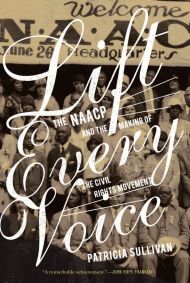For some time now, I’ve been rooting for Lightsquared. Despite the fact that it faces tough odds trying to build out an expensive wireless network, a wireless network built from ground up for wholesale only could totally change the wireless market (which is entirely different from the mobile cellphone (aka the “commercial mobile radio service” or “CMRS”) market, but that’s a rant for another time). But now, I just love the fight between Lightsquared and the GPS industry because it manages to contain everything that makes spectrum policy in this country like running a marathon with concrete blocks on your feet: bad neighbors operating critical systems so they can get away with being prima donnas, hostility from other federal agencies, unanticipated interference issues that crop up on deployment, and efforts to politicize the FCC’s technical process.
And, as always, a special guest appearance by a very tired looking Julie Knapp.
For a spectrum wonk such as myself, it simply does not get better than this. I also get one more real world example where I say to all the “property is the answer to everything” guys: “Ha! You think property is so hot? The rights are clearly defined here. Where’s your precious Coasian solution now, smart guys?” Which usually sends them back muttering that it’s not their fault no one in the real world follows the models that explain how it’s all supposed to work out in the world of rational actors and no transaction costs where unicorns frolic in the golden sunshine.
So, in the latest installment of my occasional “Insanely Long Field Guide” series, I take a lengthy look at Lightsquared, how we got here, and what I think will happen. Short version, ignore all the pseudo-Whitewater nonsense flogged by the conservative conspiracy theorists and complaints that the FCC bypassed their own process. So far, and I do not say this often so please pay attention, the FCC has behaved entirely appropriately, even intelligently. (Yeah, yeah, don’t let it go to your heads.) What matters is that the FCC is about to receive a report that confirms that, yes, when Lightsquared operates it system, it creates interference for existing deployed GPS systems. As a result, only the following things matter:
1. The Lightsquared folks are right about how the GPS guys knew this day would come and conveniently chose to do nothing. But in the short term it doesn’t matter, because the FCC will not allow anything to happen to GPS.
2. OTOH, if the GPS guys get their way, it means taking another 40 MHz of prime spectrum and rendering it useless forever. That also isn’t going to happen. That suggests a phase in/compromise.
3. Whether Lightsquared actually survives the compromise as a viable service will depend on a lot of things. The dimensions of any such compromise will depend on the interference tests. So while it is pretty clear from what’s been leaked that Lightsquared’s system as proposed causes interference with GPS systems, a lot of questions remain about what ought to happen to make it so that GPS and Lightsquared can live together in harmony.
At this point (from my wonkish perspective), the precedent of how to deal with annoying neighbors is almost more important than what actually happens to Lightsquared. If the GPS guys get their “sit on your rear-end veto,” then we can pretty much kiss off spectrum reform in the most useful spectrum bands. Every potentially useful band has neighbors that built systems on the assumption that nothing would ever change. So the FCC either finds a way to balance the interest of incumbents with fostering the expanded use we need for our expanding wireless demand, or we forget about “spectrum flexibility” and resign ourselves to the current state of the universe pumped up by the occasional auction.
More below . . . .





